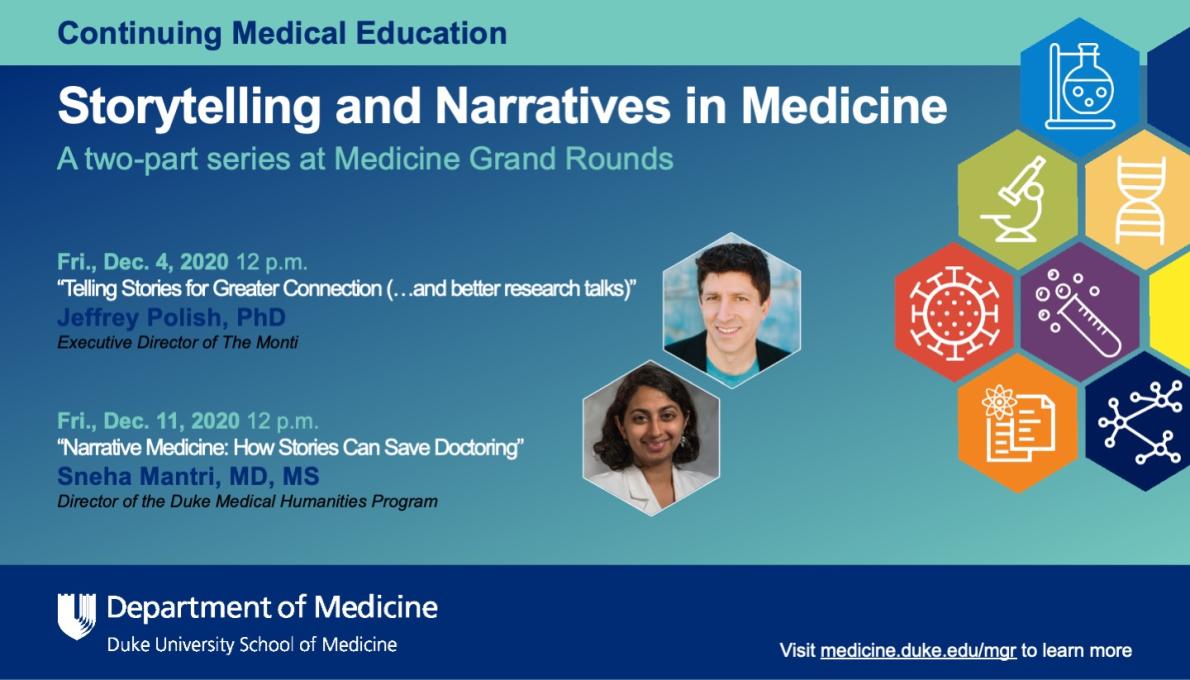
By Govind Krishnan, MD, chief resident for quality and patient safety at the Durham VA Medical Center
Medicine Grand Rounds these past two weeks have focused on the role of narratives in our practice of medicine.
On Dec. 4, we heard from Jeff Polish, PhD, Executive Director of The Monti, about how to communicate more effectively. We in medicine are so reliant on our ability to communicate effectively. We conduct research and make remarkable discoveries, however, these discoveries are meaningless if we are not able to communicate this to others and engage them enough to listen! A special thank you to Dr. Polish on opening our eyes on how to do this effectively.
We also, of course, communicate with patients daily. As physicians, we spend time and effort learning and re-learning the appropriate diagnostic investigations and the best therapies for our patients. But again, if we are not capable of communicating this to our patients, what benefit do they derive? The importance of communication and how to do it well was highlighted in Dr. Polish's talk, "Telling Stories for Greater Connection (...and better research talks)." If you missed the session, you can watch the recording here.
Last week at Medicine Grand Rounds, we heard from Sneha Mantri, MD, MS, assistant professor of Neurology and Director of the Medical Humanities Program at the Trent Center for Bioethics, Humanities & History of Medicine, on, "Narrative Medicine: How Stories Can Save Doctoring."
We in medicine find that our practice is constantly threatened. The usual culprits come to mind be it the burden of documentation, the decreased time we can spend with patients, not to mention the latest and biggest stressor of a global pandemic. This and many other factors lead to increasing burnout. However, the practice of focusing on our patient's narratives and even our stories may help us find our bearings again. If you missed the session, you can see Dr. Mantri's full talk here.
Let's continue the conversation on storytelling, effective communication, and how narratives in medicine can benefit us all.
Learn more about narrative medicine
La Pluma: A Narrative Writing Group for the Duke Medical Community
CHCI Health and Medical Humanities Network
LitMed: Literature Arts Medicine Database
Columbia University Department of Medical Humanities and Ethics: Division of Narrative Medicine
For more information on the Trent Center for Bioethics, Humanities & History of Medicine, click here.
The well-being of our providers is of paramount importance to the department. Find resources and opportunities here.